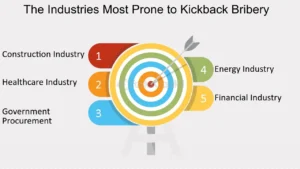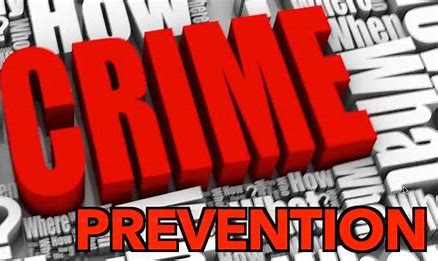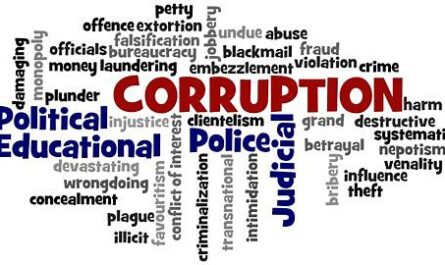INTRODUCTION
Bribery and kickbacks in government contracts represent serious forms of corruption that undermine the integrity of public procurement processes, erode public trust in government institutions, and divert public resources for private gain. In this comprehensive analysis, we’ll delve into the complexities of bribery and kickbacks in government contracts, examining their characteristics, impacts on governance and development, enforcement challenges, and strategies for combating corruption.

1. Understanding Bribery and Kickbacks:
- Bribery involves the offering, giving, receiving, or soliciting of something of value (such as money, gifts, or favors) to influence the actions or decisions of public officials or individuals in positions of authority.
- Kickbacks refer to the payment of illicit fees, commissions, or bonuses to public officials, contractors, or intermediaries as a reward for securing or facilitating government contracts, licenses, permits, or favorable treatment.
2. Characteristics of Bribery and Kickbacks in Government Contracts:
- Bribery and kickbacks often occur in the context of public procurement processes, where government officials have discretion over awarding contracts, selecting vendors, or approving permits.
- Perpetrators of bribery and kickbacks may include government officials, politicians, contractors, intermediaries, and private sector entities seeking unfair advantages, preferential treatment, or lucrative business opportunities.
- Bribery and kickback schemes may involve collusion, bid rigging, price fixing, falsification of documents, or other fraudulent practices to manipulate the outcome of procurement processes and enrich corrupt actors.
3. Impacts of Bribery and Kickbacks:
- Bribery and kickbacks undermine fair competition, distort market dynamics, and create barriers to entry for honest businesses, reducing efficiency, innovation, and economic growth.
- Corruption in government contracts leads to substandard quality of goods and services, inflated costs, project delays, and cost overruns, wasting public resources and hindering development outcomes.
- Bribery and kickbacks perpetuate a culture of impunity, erode public trust in government institutions, and undermine the rule of law, exacerbating social inequalities, and fueling public discontent and unrest.

4. Enforcement Challenges:
- Combatting bribery and kickbacks in government contracts poses significant challenges for law enforcement agencies, including limited resources, institutional capacity gaps, and legal obstacles to prosecution.
- Corruption schemes often involve complex networks of actors, shell companies, offshore accounts, and money laundering techniques, making it difficult to trace illicit proceeds and hold perpetrators accountable.
- Weak regulatory frameworks, lack of transparency, and insufficient oversight mechanisms in public procurement processes create opportunities for corruption and hinder effective detection and prosecution of corrupt practices.
5. Strategies for Combating Corruption:
- Strengthening anti-corruption laws, regulations, and enforcement mechanisms is essential for deterring bribery and kickbacks in government contracts and holding corrupt actors accountable.
- Enhancing transparency, integrity, and accountability in public procurement processes through open contracting, disclosure of contract information, and citizen participation can help prevent corruption and promote fair competition.
- Implementing anti-corruption compliance programs, whistleblower protection mechanisms, and integrity pacts with contractors and suppliers can help prevent, detect, and report corrupt practices in government contracts.

6. International Cooperation and Anti-Corruption Initiatives:
- International cooperation and collaboration among governments, international organizations, civil society, and the private sector are critical for combating bribery and kickbacks in government contracts, especially in cases involving transnational corruption and illicit financial flows.
- Multilateral initiatives, such as the United Nations Convention against Corruption (UNCAC), the OECD Anti-Bribery Convention, and the World Bank’s Integrity Vice Presidency, provide frameworks for promoting anti-corruption efforts, fostering cooperation, and sharing best practices.
- Strengthening cross-border cooperation, extradition treaties, and mutual legal assistance agreements can facilitate the investigation, prosecution, and recovery of assets linked to corrupt practices in government contracts.
In conclusion, bribery and kickbacks in government contracts pose significant challenges to governance, economic development, and the rule of law. Addressing corruption requires concerted efforts from governments, civil society, the private sector, and international partners to strengthen anti-corruption laws, enhance transparency and accountability, and promote ethical standards and integrity in public procurement processes. By tackling corruption at its root causes and building resilient institutions, stakeholders can foster a culture of integrity, accountability, and good governance, ensuring that public resources are used for the benefit of all citizens, rather than lining the pockets of corrupt officials and their accomplices.



